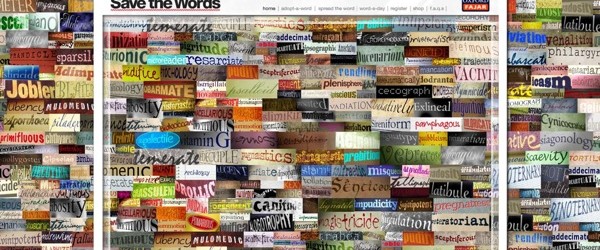
Spread The Good Word
Culture, DigitalI am standing on a stadium ground, with a duffel bag filled with imagination. The night is a rich velvety black.
From somewhere up in the bleachers, comes a murmur, “Yes, yes, me!”
Behind me, a squeaky voice, not unlike that of SpongeBob SquarePants, calls, “Over here.”
“Hello,” coos another one, from what sounds like an undersea tunnel.
I blink, and the scene vaporizes coldly.
I am only sitting at my desk, looking at my computer screen. The monitor is displaying a Web site that has the look of an odd sort of art gallery. I roll my mouse over it. And then, the source of the sounds is revealed.
It’s “words” that are clamoring for my attention. Like orphaned kids, left in a cruel orphanage, they beg to be taken home.
Save the Words is an interactive platform created by Oxford University Press, which aims to bring out-of-usage words, back into circulation. It features a broad selection of lexical artifacts that very few of us are even aware of, let alone use them.
According to the Global Language Monitor, a Texas-based organization that tracks neologisms, the numbers of words in the English lexicon, as on January 1, 2012, stood at 1,013,913.
Every 98 minutes, the world’s most supple language, is absorbing a new word from either a non-English culture or a different sphere of human activity. One fresh coinage appears to unsentimentally displace another from our culture that which is perceived as archaic, arcane, or anachronistic.
Save the Words seems to remind us that the pre-Internet-era vocabulary can well co-exist with the set that came after it. One can pledge to adopt a forgotten word and promise to use it conversation or correspondence. A true logophile may even want to buy a T-shirt with her or his adopted word emblazoned across it, and help spread the good word.
See eyes pop out by describing money-loving Mr. Eugene Krabs as a philargyrist. And stump anyone by calling a fruit seller, an oporopolist.























[…] ZOUCH, June 4, 2012. […]